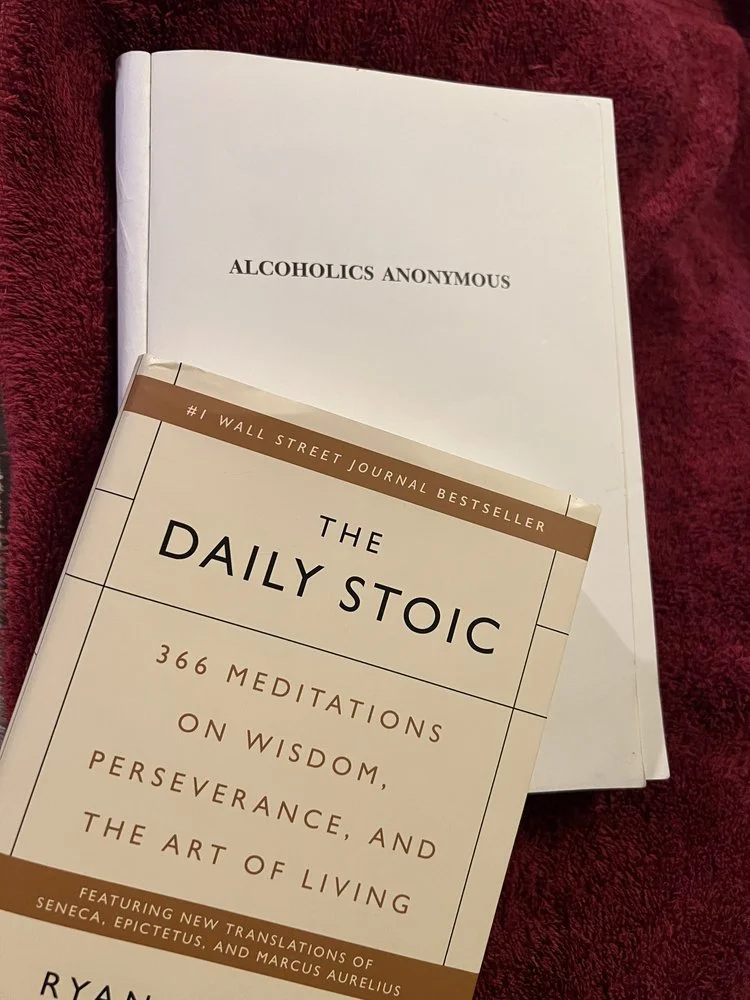Steps to Peace and Purpose is a 12 step guided program and has been serving the Asheville area for many years now. As a person in long term recovery I was told by my sponsor it was important to continue my journey of introspection and to delve a little into the Stoics, which I have done and the effects have been a tremendous challenge but have rendered a rewarding outlook on life for me personally.
Stoicism and the 12-step approach, commonly associated with recovery from addiction, share some similarities in their principles and practices. While they originated in different contexts and time periods, there are philosophical and practical connections that can be drawn between the two.
Acceptance of what cannot be changed: Both stoicism and the 12 steps emphasize accepting the aspects of life that are beyond our control. Stoicism encourages individuals to focus on changing their reactions to external events, while the 12 steps emphasize accepting powerlessness over addictive behaviors.
Living in the present moment: Stoicism teaches the importance of being mindful and present, focusing on the present moment rather than dwelling on the past or worrying about the future. This aligns with the 12-step principle of taking things "one day at a time."
Cultivating virtue and character: Stoicism emphasizes the development of virtues such as wisdom, courage, and self-discipline. Similarly, the 12 steps encourage individuals to engage in moral inventory, making amends, and practicing principles like honesty, humility, and accountability.
Self-reflection and self-improvement: Both stoicism and the 12 steps encourage individuals to engage in self-reflection and introspection. Stoicism promotes self-examination and the pursuit of self-improvement, while the 12 steps involve personal inventory and ongoing self-assessment.
It's important to note that while there are parallels between stoicism and the 12 steps, they are distinct in their approach and goals. Stoicism is a philosophy of life, while the 12-step approach is a specific program for addiction recovery. However, individuals in recovery may find value in integrating stoic principles and practices into their journey as a source of guidance and support.
As always, it's recommended to consult with professionals or experts in the field to explore these connections further or to tailor an approach that suits individual needs and circumstances.
—Ronan O'Loughlin

